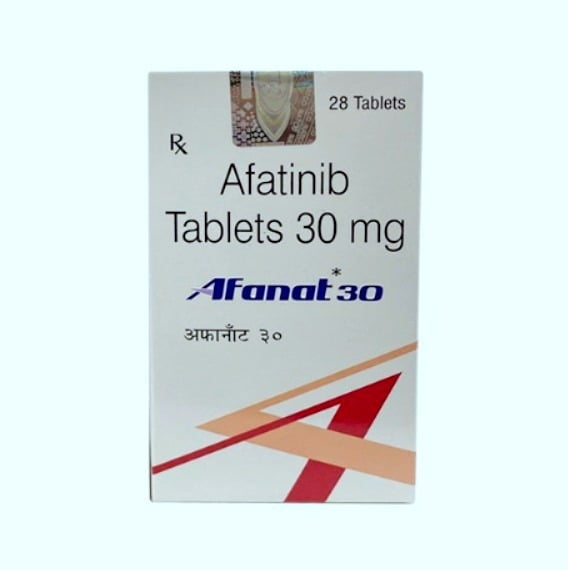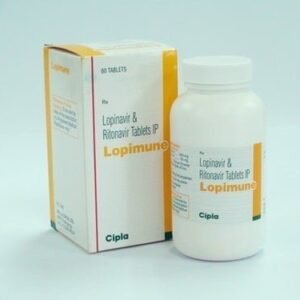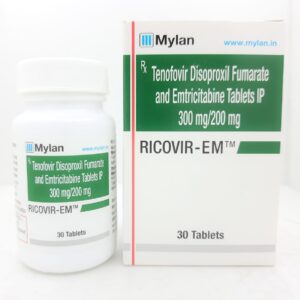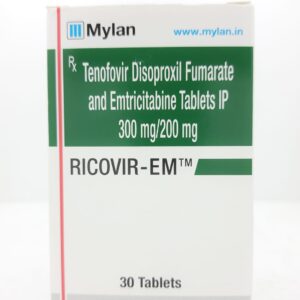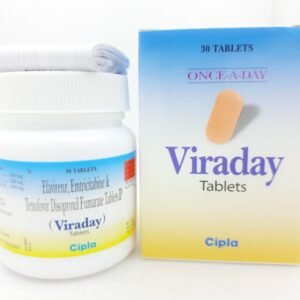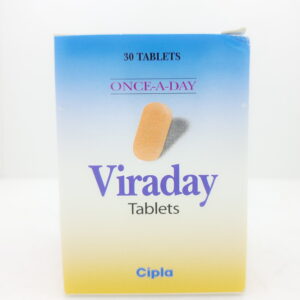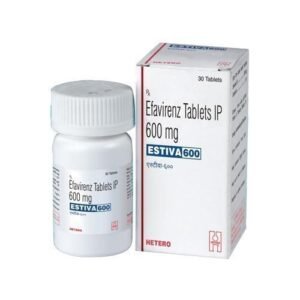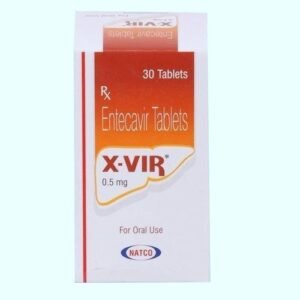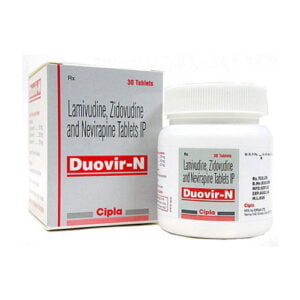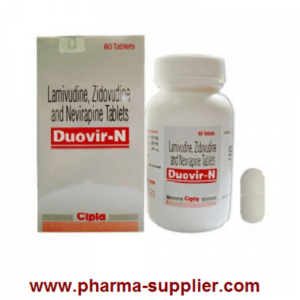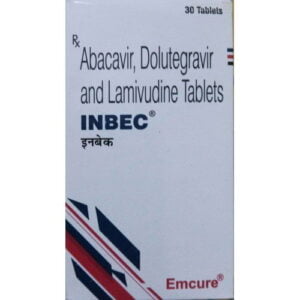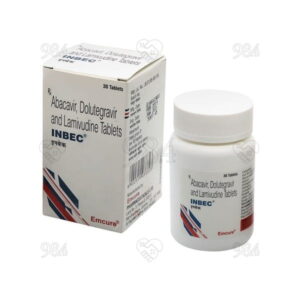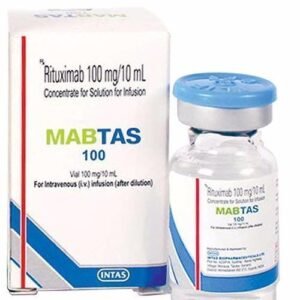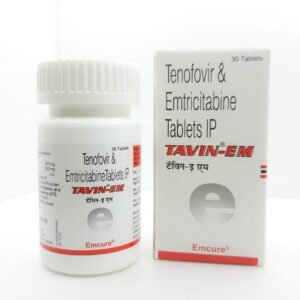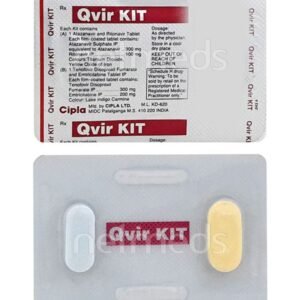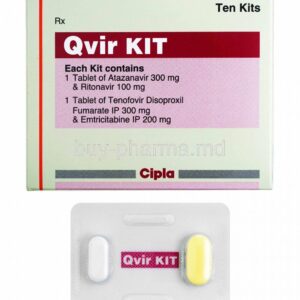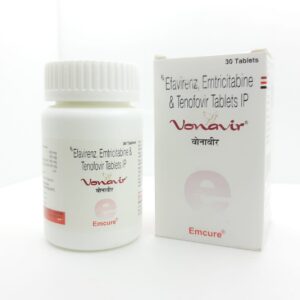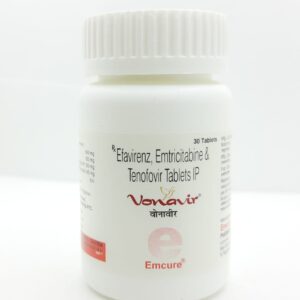Last Updated on August 14, 2024 by admin
Understanding Afanat 30mg Tablets: Uses, Benefits, and Precautions
Introduction
Afanat 30mg Tablets are a targeted therapy medication, primarily utilized in the treatment of specific types of cancer. This drug is most commonly prescribed for patients with non-small cell lung cancer (NSCLC), particularly for those whose tumors exhibit specific genetic mutations. Afanat 30mg works by inhibiting the activity of proteins involved in the growth and spread of cancer cells, making it a vital component in the management of this condition.
Non-small cell lung cancer is one of the most prevalent forms of lung cancer, accounting for approximately 85% of all lung cancer cases. The advent of Afanat 30mg has marked a significant advancement in oncology, offering a more tailored approach to treatment. Unlike traditional chemotherapy, which attacks both healthy and cancerous cells, targeted therapies like Afanat 30mg aim directly at cancer cells, thereby minimizing damage to normal tissues and reducing the severity of side effects.
The significance of Afanat 30 in oncology cannot be overstated. It provides an effective treatment option for patients with advanced NSCLC, particularly those who have exhibited resistance or intolerance to other therapies. Its role in extending progression-free survival and improving the quality of life for these patients underscores its importance in modern cancer treatment protocols.
A comprehensive understanding of Afanat 30 Tablets, including their uses, benefits, and necessary precautions, is essential for healthcare providers and patients alike. In the following sections, we will delve deeper into the various aspects of this medication, providing detailed insights into how it works, its therapeutic benefits, and the critical precautions that must be observed during its use.
Uses of Afanat Tablet
Benefits of Afanat Tablet
Uses of Afanat 30mg Tablets
Afanat 30 Tablets are primarily indicated for the treatment of non-small cell lung cancer (NSCLC), specifically in cases where tumors exhibit certain epidermal growth factor receptor (EGFR) mutations. These mutations play a critical role in the abnormal growth and proliferation of cancer cells, and Afanat 30mg functions as a tyrosine kinase inhibitor that targets and blocks the consequent signaling pathways. This inhibition helps in preventing the growth and spread of cancerous cells.
Patients diagnosed with advanced stages of NSCLC often have limited treatment options, and Afanat 30 Tablets are typically prescribed as part of a targeted therapy regimen. The use of this medication is particularly crucial for those whose tumors have been tested and confirmed to harbor specific EGFR mutations, such as exon 19 deletions or exon 21 L858R substitution mutations. Testing for these mutations is a prerequisite before commencing treatment with Afanat 30, ensuring that the therapy will be effective.
Afanat 30 Tablets are administered orally, with the dosage and treatment plan tailored to the individual patient’s condition, overall health, and response to the medication. It is commonly prescribed to patients who exhibit progressive disease despite previous chemotherapy treatments or other forms of targeted therapies. The decision to use Afanat 30mg as a treatment option is generally based on a comprehensive assessment carried out by an oncology specialist, considering both the genetic profile of the tumor and the patient’s medical history.
In addition to NSCLC, ongoing research and clinical trials are investigating the potential uses of Afanat 30 in other cancers marked by abnormal EGFR activity. This highlights the evolving landscape of targeted cancer therapies, where precision medicine plays a pivotal role in improving patient outcomes. Thus, Afanat 30 Tablets represent a significant advancement in the targeted treatment of EGFR-mutant NSCLC, offering hope and novel therapeutic avenues for affected patients.
Directions for Use
Proper administration of Afanat 30mg Tablets is crucial to ensure the medication’s optimal effectiveness and to minimize potential side effects. Afanat 30 should be taken exactly as prescribed by your healthcare provider. It is essential to adhere to the prescribed dosage and administration schedule to achieve the best therapeutic outcomes.
The standard direction is to take Afanat 30 Tablets once daily. It’s recommended to take the medication on an empty stomach, preferably at least one hour before or two hours after any meal. This is due to the fact that food can alter the absorption of Afanat 30, potentially decreasing its efficacy. Hence, maintaining consistency with respect to timing and conditions of intake is critical.
In cases where a dose is missed, it should be taken as soon as you remember, provided it is not close to the time of the next scheduled dose. If it is nearly time for your next dose, skip the missed dose and resume your regular dosing schedule. Doubling up on doses to compensate for a missed one is strongly discouraged, as this can increase the risk of adverse effects.
Should an overdose occur, immediate medical attention is required to manage potential complications. Symptoms of an overdose may include severe diarrhea, skin rash, and gastrointestinal disturbances. Contact your healthcare provider or seek emergency medical help if an overdose is suspected.
It is also imperative to communicate with your healthcare provider about any other medications you may be taking, including over-the-counter drugs and supplements, as these can interact with Afanat 30 and impact its effectiveness or increase the risk of side effects.
Consistently monitoring and following these directions can contribute significantly to the safe and effective use of Afanat 30mg Tablets.
Benefits of Afanat 30mg Tablets
Afanat 30 Tablets present a significant advantage in the treatment landscape for non-small cell lung cancer (NSCLC). One of the primary benefits of this medication lies in its mechanism of action, which involves inhibiting epidermal growth factor receptor (EGFR) tyrosine kinase. By irreversibly binding to the EGFR, Afanat 30 effectively disrupts the signaling pathways that cancer cells utilize for growth and proliferation. This targeted approach not only stunts cancer cell growth but also enhances the specificity and efficacy of treatment, minimizing damage to surrounding healthy cells.
Several clinical trials have underlined the profound impact that Afanat 30 Tablets can have on patient prognosis. In the LUX-Lung series of trials, for instance, patients with EGFR mutation-positive NSCLC who were treated with Afanat 30 demonstrated a marked improvement in progression-free survival compared to those receiving traditional chemotherapy. Specifically, the LUX-Lung 3 and LUX-Lung 6 trials reported median progression-free survival times of 11.1 and 11.0 months, respectively, for patients on Afanat 30, versus just 6.9 and 5.6 months for those on chemotherapy regimes.
Moreover, Afanat 30mg Tablets have been associated with not only extending the duration of disease control but also enhancing the quality of life for patients. By effectively managing the symptoms and progression of NSCLC, patients often experience reduced disease-related morbidity. This improvement in quality of life is a critical factor given the substantial burden that lung cancer places on individuals. The targeted nature of Afanat 30 also tends to result in a more favorable side-effect profile compared to broader-acting chemotherapies, which contributes to better overall patient management and compliance.
In summary, Afanat 30 Tablets offer a potent and targeted option for managing NSCLC, with considerable evidence supporting their efficacy and positive impact on patient outcomes. By inhibiting key growth pathways in cancer cells, this medication provides a meaningful extension of progression-free survival and a significant enhancement in quality of life, thus representing a valuable tool in the oncological arsenal.
Storage
Proper storage of Afanat 30mg Tablets is essential to maintain their efficacy and safety. To ensure optimal effectiveness, it is important to store these tablets at controlled room temperature, ideally between 20°C to 25°C (68°F to 77°F). Short-term excursions permitted between 15°C to 30°C (59°F to 86°F) should not compromise the medication’s quality, but prolonged exposure to extreme temperatures should be avoided.
In addition to temperature control, it is crucial to protect Afanat 30 Tablets from excessive moisture. Preventive measures include storing the medication in its original container with the lid tightly sealed. The storage area should be dry and free from any direct sources of moisture, such as sinks, baths, or humidifiers, to prevent tablet degradation.
Another critical aspect of storage is ensuring that Afanat 30mg Tablets are kept out of reach of children and pets. To maintain household safety, store the medication in a high, locked cabinet or a secure location inaccessible to curious hands and paws. It is also advisable to leave the tablets in their original packaging, which usually includes child-resistant features.
By adhering to these storage guidelines, patients can uphold the integrity and therapeutic potency of Afanat 30 Tablets. Proper storage practices not only maximize the medication’s benefits but also mitigate the risk of accidental ingestion by children and pets, ensuring a safe environment for everyone in the household.
Medicinal Benefits
Afanat 30mg Tablets have emerged as a significant advancement in the realm of targeted cancer therapy. Their primary medicinal benefit lies in their ability to inhibit the Epidermal Growth Factor Receptor (EGFR) and HER2 (human epidermal growth factor receptor 2) kinases. These enzymes play a crucial role in the proliferation and survival of cancer cells. By blocking the action of these receptors, Afanat 30 effectively hinders the growth and spread of cancer cells, offering therapeutic benefits particularly against non-small cell lung cancer (NSCLC) with specific mutations.
Besides its primary application, Afanat 30 has demonstrated a range of secondary benefits. Research indicates that it may also be beneficial in combatting other forms of cancer that exhibit overexpression or mutation of EGFR and HER2. Although not yet approved for all these conditions, ongoing studies continue to explore its efficacy in treating head and neck cancers, and certain types of breast cancer characterized by HER2 positivity. These secondary applications reflect the broader potential of Afanat 30 in oncology.
Additionally, beyond its role in oncology, there is emerging research suggesting Afanat 30mg might offer off-label benefits. Some studies hint at its effectiveness in managing tumors with resistance to other forms of EGFR inhibitors, thus providing an alternative for patients experiencing treatment failure with first-line therapies. The medication is also being examined for its potential to address specific genetic mutations linked to more aggressive cancer behaviors.
As with any medication, it is essential to consider both the proven benefits and ongoing research to understand the full potential of Afanat 30 Tablets. Its specific action mechanism, primarily targeting cancer cell growth pathways, underscores its importance in modern targeted cancer therapy while highlighting the importance of continued research to uncover additional uses.
Drug Warnings and Interactions
Afanat 30mg Tablets, utilized in the treatment of specific forms of non-small cell lung cancer, come with a series of drug warnings that necessitate careful consideration. Potential side effects can range from mild to severe and include diarrhea, skin reactions, and mouth sores. In some cases, more serious reactions such as liver enzyme abnormalities, interstitial lung disease, and severe diarrhea have been reported, underscoring the importance of monitoring and managing these conditions effectively.
It is crucial to note that Afanat 30mg should not be used in patients with certain pre-existing conditions. Individuals with a history of severe hypersensitivity to Afanat 30 or any component of the formulation should avoid its use. Additionally, patients with moderate to severe hepatic impairment, severe renal impairment, or significant gastrointestinal disorders may be at higher risk for adverse effects and thus should not be prescribed this medication without rigorous medical evaluation. Regular liver and kidney function tests are recommended to mitigate potential risks.
Interactions with other drugs and supplements are also a critical aspect to consider. Afanat 30mg can interact with a variety of substances, leading to either increased toxicity or diminished therapeutic efficacy. Notable interactions include those with other tyrosine kinase inhibitors, anticoagulants such as warfarin, and strong inhibitors or inducers of the enzyme CYP3A4. Furthermore, concurrent use of St. John’s Wort, a common herbal supplement, can significantly reduce the effectiveness of Afanat 30 by increasing its metabolism.
Given the complexity of potential drug interactions, it is imperative for patients to inform their healthcare providers about all medications and supplements they are taking. Utilizing a comprehensive drug interactions checker is strongly advised to manage and mitigate risks effectively. This proactive approach helps ensure the safe and effective use of Afanat 30 Tablets, providing essential support to achieve optimal therapeutic outcomes.
Side Effects of Afanat 30mg Tablets
Afanat 30 Tablets, like any other medication, may cause side effects. Understanding both common and severe side effects is crucial for patients undergoing treatment. Some common side effects include diarrhea, rash, mouth sores, dry skin, and decreased appetite. These effects are generally manageable but can be unpleasant. Patients experiencing mild symptoms should maintain proper hydration, use skin moisturizers, and pay attention to their diet to mitigate these effects.
More severe side effects require prompt medical attention. These include signs of lung problems such as shortness of breath, persistent cough, or chest pain. Liver issues might manifest as yellowing of the skin or eyes (jaundice), dark urine, or severe abdominal pain. Additionally, severe skin reactions, such as blistering or peeling skin, necessitate immediate consultation with a healthcare provider. Severe diarrhea that persists or is accompanied by dizziness or lightheadedness also warrants quick medical intervention.
Patients should be vigilant for symptoms indicative of severe allergic reactions, including swelling of the face, lips, or tongue, hives, or difficulty breathing. If any of these symptoms occur, it is imperative to seek emergency medical care without delay. Understanding the importance of timely medical attention can prevent complications and ensure better management of adverse effects associated with Afanat 30 Tablets.
While minor side effects are typically manageable with self-care measures, severe reactions necessitate professional evaluation and may require discontinuation or adjustment of the medication. Open communication with healthcare providers about any adverse effects can lead to better patient outcomes and more effective management of side effects.
Side effects of Afanat 30mg Tablet
Common side effects of Afanat 30mg
- Diarrhea
- Rash
- Dry skin
- Nausea
- Vomiting
- Loss of appetite
- Itching
- Stomatitis (Inflammation of the mouth)
- Nail disorder
How Afanat 30mg Tablets Work
Afanat 30mg Tablets are a type of targeted cancer therapy used primarily for the treatment of non-small cell lung cancer (NSCLC). The primary mechanism by which Afanat 30 functions involves targeting and binding to specific proteins known as Epidermal Growth Factor Receptors (EGFR). These receptors play a crucial role in cell surface signaling pathways that control cell growth and division.
In certain types of cancer, mutations in the EGFR gene can cause constant activation of these receptors, leading to uncontrolled cell proliferation and tumor growth. Afanat 30 is designed to fight this malfunction. By specifically targeting compromised EGFRs, Afanat 30 seeks out and binds to these receptors, effectively inhibiting their kinase activity. Kinases are enzymes that transfer phosphate groups from high-energy donor molecules, like ATP, to specific substrates, a fundamental process in signaling cascades regulating cell growth.
When Afanat 30mg inhibits these kinase activities, it disrupts the downstream signaling pathways that would otherwise stimulate cancer cell growth and division. This disruption can lead to a reduction in tumor proliferation and, consequently, an improvement in clinical outcomes for patients with NSCLC exhibiting EGFR mutations.
Additionally, Afanat 30mg irreversible binding to the EGFR is a distinctive feature. Unlike reversible inhibitors, Afanat 30 forms a permanent bond, offering sustained inhibition of receptor activity. This can provide a more robust and lasting therapeutic effect, enhancing the potential for better management of the disease.
Understanding the targeted nature of Afanat 30 helps highlight its importance in precision medicine. By focusing on specific molecular abnormalities in cancer cells, this medication offers tailored treatments that can improve efficacy and exercise more significant control over unwanted side effects compared to non-specific chemotherapies.
Safety advice
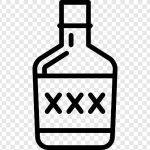
Alcohol

Pregnancy

Breast feeding

Driving
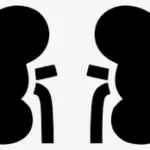
Kidney
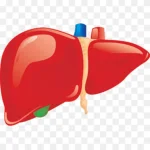
Liver
General Warnings and Safety Advice
When taking Afanat 30mg Tablets, it is essential to be aware of several general warnings and safety precautions. These precautions are put in place to mitigate the risk of adverse reactions and to ensure the medication’s effectiveness. Firstly, patients should inform their healthcare provider of any pre-existing health conditions, such as liver or kidney disease, as these could influence the drug’s metabolism and excretion.
Contraindications play a significant role in determining the appropriateness of Afanat 30 for a patient. It is contraindicated in individuals with known hypersensitivity to Afanat 30 or any of its excipients. Furthermore, caution is advised for patients with interstitial lung disease, gastrointestinal perforation, or significant renal impairment. Pregnant women should also avoid this medication as it may cause harm to the fetus, and effective contraception should be used during treatment and for at least 2 weeks after the last dose.
Monitoring for potential side effects is a crucial aspect of the safe use of Afanat 30mg Tablets. Common side effects like diarrhea, rash, and mouth sores should be reported promptly, as they can often be managed effectively if caught early. Severe reactions such as severe liver toxicity, dehydration due to persistent diarrhea, and severe skin reactions require immediate medical attention. Regular medical check-ups are imperative for patients on Afanat 30, as they enable healthcare professionals to monitor the drug’s efficacy and adjust dosages if necessary.
Patients are advised to report any new or unusual symptoms to their healthcare provider immediately. This includes unexpected weight loss, difficulty breathing, or persistent pain, which may indicate more serious underlying conditions. Following these safety measures can significantly contribute to the effective and safe use of Afanat 30 Tablets, thereby maximizing therapeutic benefits while minimizing risks.
Diet and Lifestyle Considerations
When undergoing treatment with Afanat 30mg Tablets, adopting certain dietary and lifestyle changes can play a supportive role. Firstly, it is crucial to maintain a well-balanced diet that includes a variety of fruits, vegetables, lean proteins, and whole grains. These foods provide essential nutrients that can bolster the immune system and overall health. Including high-fiber foods can also aid in digestion, which may be important since some medications can affect gastrointestinal function.
Particular attention should be given to foods and substances that might interfere with the efficacy of Afanat 30 Tablets. For instance, grapefruit and grapefruit juice are known to interact with many medications and potentially alter their absorption and metabolism. Therefore, it is advisable to avoid these while on this treatment. Excessive alcohol consumption can also have adverse effects and should be limited or avoided, as it can strain the liver, an organ vital in processing medications.
Hydration is another essential factor. Drinking sufficient water throughout the day helps in the effective functioning of the body and can mitigate some potential side effects of the medication, like dry skin or lips. Complementing dietary strategies with a healthy lifestyle is equally important. Regular physical activity tailored to one’s ability and overall health not only improves cardiovascular health but also enhances mood and energy levels, which can be beneficial during treatment. Activities such as walking, swimming, or yoga can offer these advantages without being overly strenuous.
Moreover, stress management through techniques such as meditation, deep-breathing exercises, and even hobbies can positively influence one’s response to treatment. Compliance with the medication regimen is crucial; thus, setting reminders or establishing a routine for taking the medication can ensure consistency. Overall, integrating these diet and lifestyle habits can support the effectiveness of Afanat 30 Tablets and contribute to comprehensive well-being during treatment.
Here are 25 frequently asked questions (FAQs) about Afanat 30mg Tablets, along with detailed answers:
General Information and Uses
Q1: What is Afanat 30mg used for?
A: Afanat 30 is used to treat non-small cell lung cancer (NSCLC) that has specific mutations in the epidermal growth factor receptor (EGFR) gene. It is particularly effective in patients whose cancer has spread to other parts of the body.
Q2: What are the common uses of Afanat 30mg?
A: Common uses include treating NSCLC with EGFR mutations, particularly in patients who have not responded well to other treatments. It may also be used in cases where the cancer has metastasized.
Q3: What is the recommended dosage of Afanat 30mg?
A: The typical starting dose of Afanat is 40 mg taken orally once daily. The dose may be adjusted based on tolerability and side effects. Always follow the specific dosage prescribed by your healthcare provider.
Q4: When is the best time to take Afanat 30mg?
A: Afanat 30 should be taken at least 1 hour before or 2 hours after a meal, ideally at the same time each day to maintain consistent drug levels in the body.
Safety and Side Effects
Q5: What are the long-term side effects of Afanat 30mg?
A: Long-term side effects can include diarrhea, skin rash, mouth sores, dry skin, and nail infections. More serious side effects may include lung problems (interstitial lung disease), liver problems, and heart issues.
Q6: Is Afanat 30mg safe to use?
A: Afanat 30 is considered safe when used under the supervision of a healthcare provider. However, it can cause serious side effects, and patients must be monitored regularly.
Q7: Is Afanat 30mg safe in pregnancy?
A: Afanat 30 is not recommended during pregnancy due to the potential risk to the fetus. Women of childbearing age should use effective contraception during treatment and for some time after the last dose.
Q8: Can Afanat 30mg be used on children?
A: The safety and efficacy of Afanat 30 in children have not been established. It is primarily used in adult patients.
Administration and Missed Doses
Q9: What if I miss a dose of Afanat 30mg?
A: If you miss a dose, take it as soon as you remember if it is within 12 hours of the missed dose. If more than 12 hours have passed, skip the missed dose and take the next dose at the regular time. Do not take two doses at once.
Q10: Can I stop taking Afanat 30mg?
A: Do not stop taking Afanat 30mg without consulting your healthcare provider. Stopping the medication abruptly can lead to disease progression or worsen the condition.
Efficacy and Success Rate
Q11: What is the success rate of Afanat 30mg?
A: Afanat 30 has shown high efficacy in treating NSCLC with specific EGFR mutations, improving progression-free survival and overall response rates. Success rates can vary depending on individual patient factors and the specific mutation.
Q12: How long does it take for Afanat 30mg to show results?
A: The time to response varies, but some patients may start to see improvements within a few weeks of starting treatment. Full therapeutic effects may take several months.
Interactions and Precautions
Q13: Can Afanat 30mg interact with other medications?
A: Yes, Afanat 30mg can interact with other medications, including certain antifungals, antibiotics, and other cancer treatments. Inform your healthcare provider about all medications, supplements, and herbal products you are taking.
Q14: What precautions should be taken while using Afanat 30mg?
A: Patients should be monitored for side effects like diarrhea, skin reactions, and lung issues. It’s important to stay hydrated and avoid excessive sun exposure, as the drug can make your skin more sensitive to sunlight.
Alternatives and More Information
Q15: Are there alternative medications to Afanat 30mg?
A: Yes, alternative EGFR inhibitors include erlotinib, gefitinib, and osimertinib. The choice of medication depends on the specific EGFR mutation, side effect profile, and patient response.
Q16: Where can I get more information about Afanat 30mg?
A: More information can be obtained from your healthcare provider, pharmacists, and reputable medical websites such as the National Cancer Institute, Mayo Clinic, and the FDA. The medication’s package insert also contains detailed information.
Special Considerations
Q17: Does Afanat 30mg cure HIV infection?
A: No, Afanat 30mg does not cure HIV infection. It is specifically used for treating NSCLC and is not effective against HIV.
Q18: Can Afanat 30mg cause lung problems?
A: Yes, Afanat 30mg can cause serious lung problems, including interstitial lung disease. Patients should report any new or worsening respiratory symptoms to their healthcare provider immediately.
Q19: Can Afanat 30mg cause liver problems?
A: Yes, Afanat 30 can cause liver toxicity in some patients. Liver function tests should be conducted regularly, and patients should report any signs of liver issues, such as jaundice or dark urine.
Q20: Is there a risk of heart problems with Afanat 30mg?
A: Afanat 30 can cause heart problems, including decreased heart function. Patients with pre-existing heart conditions should be monitored closely during treatment.
Q21: Can I consume alcohol while taking Afanat 30?
A: While there are no specific restrictions on alcohol, it’s best to discuss alcohol consumption with your healthcare provider, as it may exacerbate certain side effects or interact with the medication.
Q22: What dietary restrictions should I follow while taking Afanat 30mg?
A: Afanat 30mg should be taken on an empty stomach, at least 1 hour before or 2 hours after a meal. There are no specific dietary restrictions, but patients should follow their healthcare provider’s advice on diet and nutrition.
Q23: How should I store Afanat 30mg tablets?
A: Store Afanat 30mg at room temperature, away from moisture and heat. Keep it in its original container and out of reach of children.
Q24: Can Afanat 30mg cause skin reactions?
A: Yes, skin reactions, including rash, dry skin, and nail infections, are common side effects. Patients should use moisturizing creams and avoid excessive sun exposure to minimize these effects.
Q25: How should I handle a suspected overdose of Afanat 30mg?
A: In case of an overdose, seek emergency medical attention immediately. Symptoms may include severe diarrhea, rash, or other serious side effects.
For more information, always consult your healthcare provider or refer to reputable medical resources. It’s essential to follow your healthcare provider’s guidance and report any unusual symptoms or concerns promptly.
References:
- Boehringer Ingelheim Pharmaceuticals, Inc, US Food and Drug Administration, [ Revised on Jan 2018] [ Accessed on 21st April 2023], https://www.accessdata.fda.gov/drugsatfda_docs/label/3018/301292s014lbl.pdf
- Boehringer Ingelheim International GmbH, Electronic medicines compendium (emc), [ Revised on Sept 2030] [ Accessed on 21st April 2023], https://www.medicines.org.uk/emc/files/pil.5147.pdf
- Helga Wecker, Cornelius F Waller; Afatinib; Recent Results in Cancer Research 2018; https://pubmed.ncbi.nlm.nih.gov/30069769/
Afanat 30mg Tablets All substitutes

